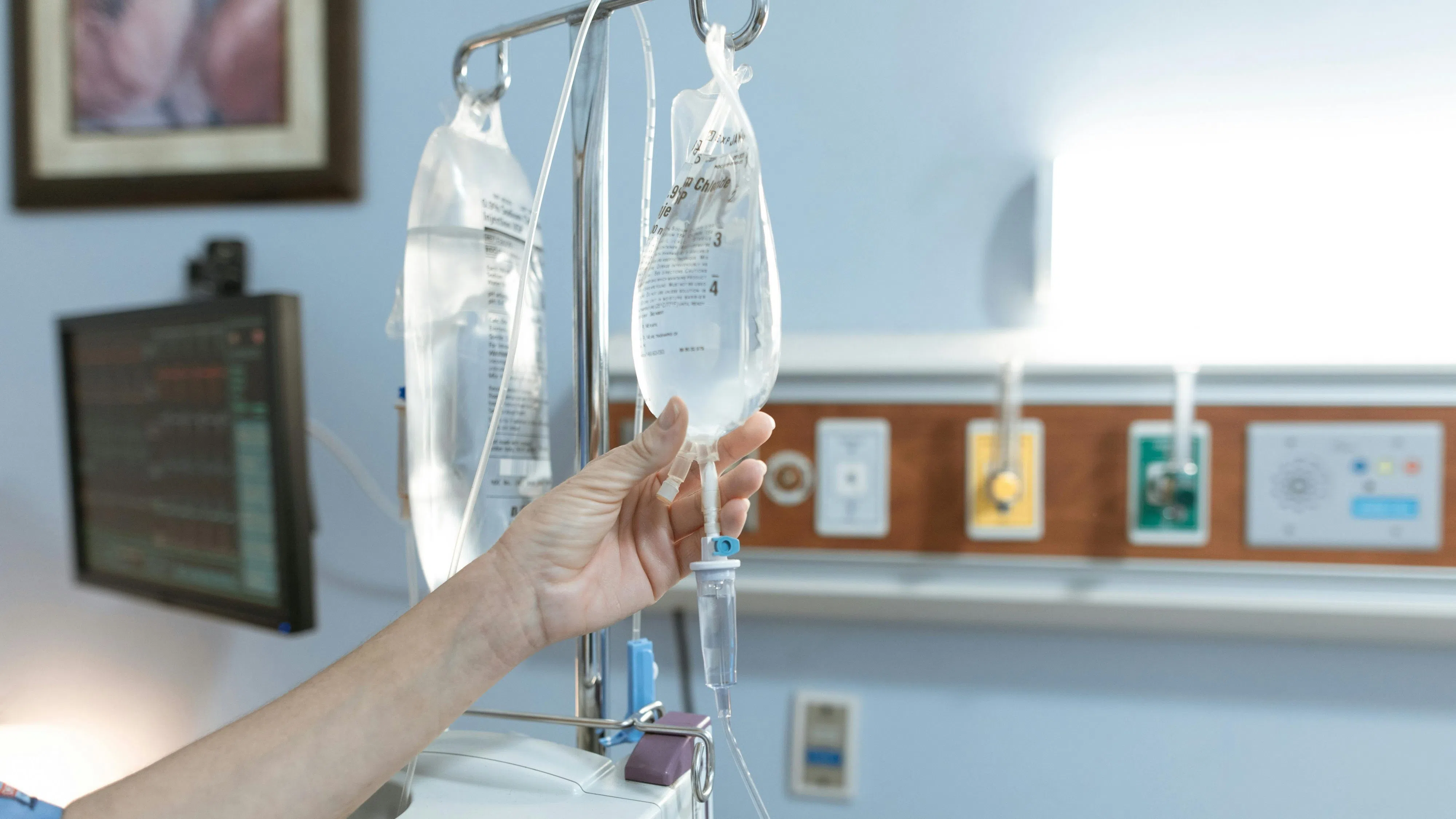A temporary nationwide shortage of IV fluid bags, caused by the destruction from Hurricane Helene, is not currently affecting patients in Nebraska. However, Bryan Health is implementing “mitigation strategies” to limit the impact of the shortage in the state.
Last week, the country’s biggest supplier of intravenous and peritoneal dialysis solutions — Baxter International — shut down their manufacturing plant in North Cove, NC, due to flooding and damage. That site produces 60% of the nation’s supply of IV solutions, according to the American Hospital Association, producing 1.5 million bags per day.
Chief Medical Officer at Bryan Health, Dr. John Trapp, told KLIN News this abrupt halt in production will particularly impact hospitals that solely rely on Baxter for their IV solutions. Bryan does purchase IV fluids from Baxter, however Baxter is only one of their multiple suppliers.
“Bryan is very fortunate because of our size, and we’ve contracted with a number of different companies that supply these types of iv solutions. So while Baxter does play an important role, they are not our sole provider. We have sought to increase our allocations from other suppliers,” Dr. Trapp explained.
A shortage of this kind could greatly impact services in hospitals that completely supply IV bags through Baxter.
“Normally, hospitals receive allocations of IV solutions that they use for all types of patients, from normal saline for surgeries and resuscitation, to dialysis patients who receive these types of fluids to undergo peritoneal dialysis. With this reduction, instead of getting your normal 100% allocation of IV fluids, they reduced that down to 40% allocation.” Dr. Trapp explained. “Oftentimes we have fluids running in continuously to administer antibiotics, to perform resuscitation during surgeries. Many of our antibiotics are placed within solutions. In the emergency department, in the perioperative area, in the intensive care unit, all of those are common areas where patients may receive IV fluids or have additional medications, such as sedation, antibiotics, hemodynamic support medications that run in with those IV fluids. Those will be the major impacts.”
Dr. Trapp says hospitals across the country are being “very thoughtful and careful” with using IV fluids. He speculates that severely impacted hospitals may have to consider delaying elective procedures in hopes to preserve IV fluids emergency procedures.
“Heart attacks, pneumonias, car accidents which require resuscitation, they’ll want to preserve those resources for those most at need and not commit to elective procedures for patients who may be able to defer that in a safe way,” he said.
At the present time, Dr. Trapp says, Bryan is not deferring any type of surgeries, elective or otherwise.
“We are not in that level of crisis right now. We are doing what I would call more mitigation strategies, trying to be very thoughtful about our IV fluids to preserve those, knowing that other hospitals will be needing more allocations. We want to make sure that we judiciously use ours and don’t ask more from our suppliers than we need to perform the services here in Lincoln, Grand island, the Central Cities, and other places where Bryant health is located,” Trapp said.
Supply chain shortages might bring back memories of the COVID-19 pandemic, in which personal protective equipment (PPE) such as hospital gowns and gloves, surgical masks and respirators, goggles, and face shields were competitively sought after across the country.
“We continue to see these events happen that strain our systems and oftentimes raise our costs, which are very difficult to help navigate and puts healthcare systems at risk when we’re paying dramatically more for supplies than we budgeted for. Our goal is to keep patients safe at all times and keep our community updated of the work that we’re doing, to try to be most thoughtful in preserving access to needed care, and Bryant Health is committed to doing that,” Dr. Trapp concluded, adding that Bryan is engaged in daily strategy-reviews to ensure they’re able to continuously provide a consistent level of care.
The Nebraska Hospital Association (NHA) released the following statement regarding this IV fluid disruption.
“While the federal government works closely with Baxter to help get operations back to normal levels, NHA is focused on the needs of our Nebraska hospitals. The NHA supports each hospital in their decisions on what services they may or may not be able to provide as a result of this disruption. We will continue to monitor this situation on a daily basis and will work to provide educational resources to our hospitals to assist them in making the best decisions for the patients they serve.”
Baxter is continuously providing updates at baxter.com.







